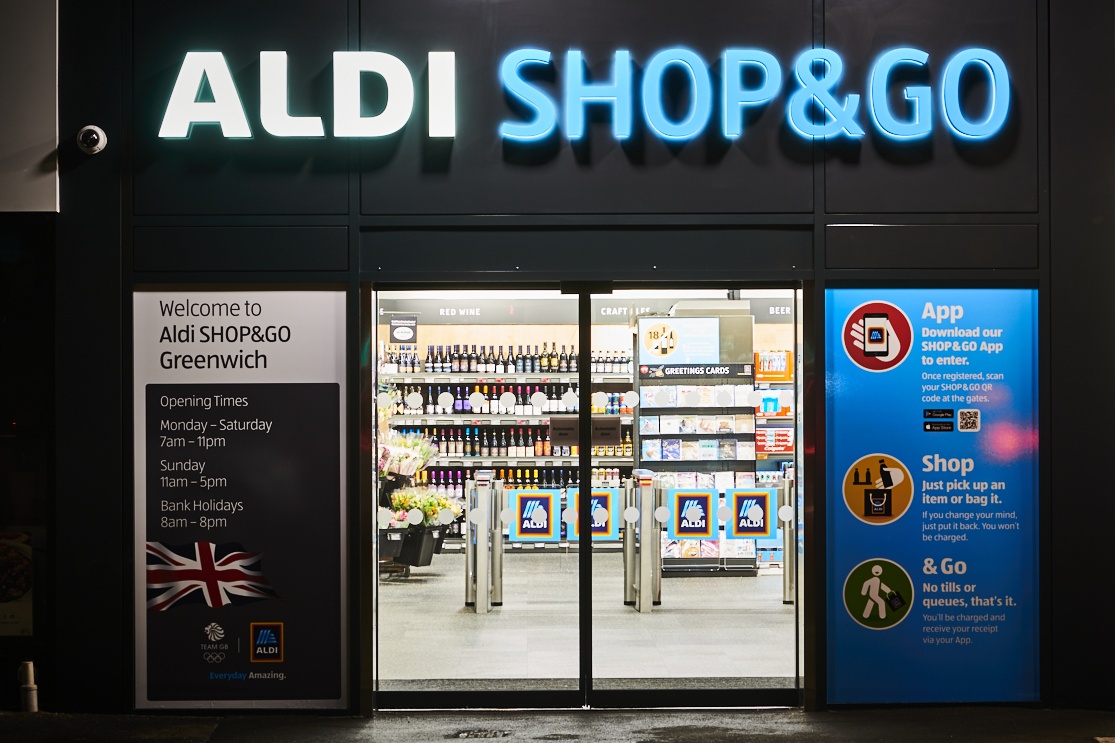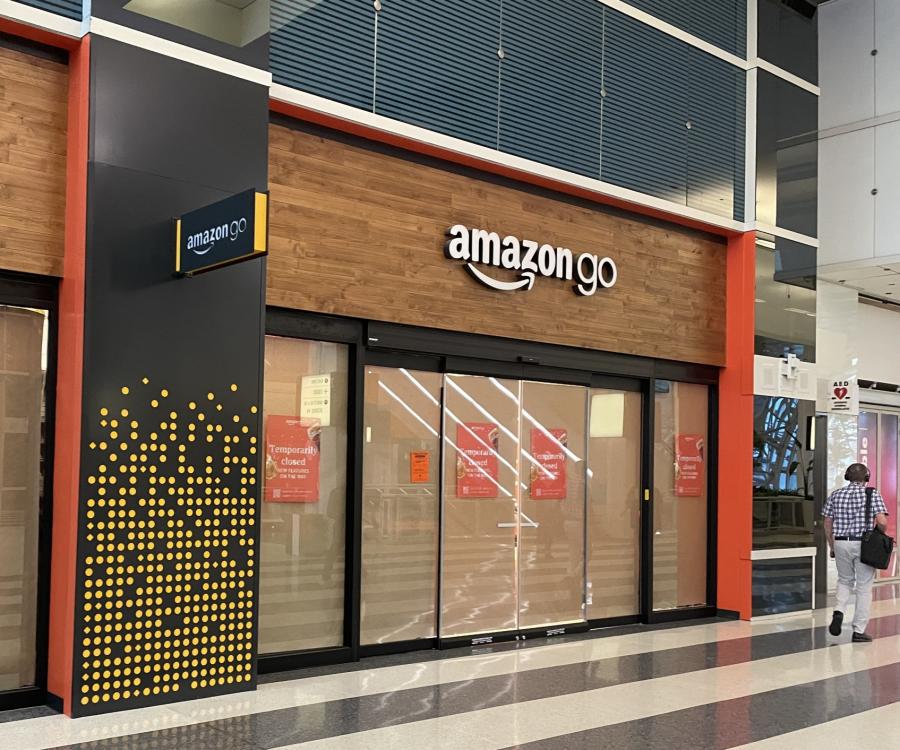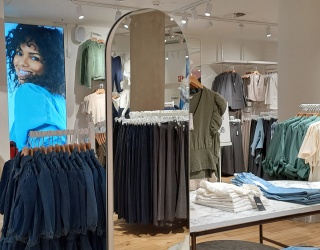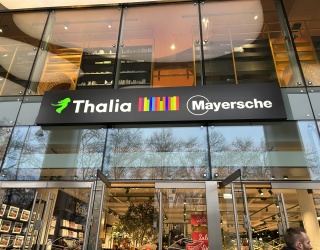The digitalisation of the retail industry, which has been advancing at a rapid pace in recent years, has also led to equipping physical stores with more and more technological intelligence.

Versatile automated store concepts have emerged where the shopping process is largely digitalised. That is why the topic of smart stores is one of the hot topics at EuroShop 2023, The No.1 Retail Trade Fair, from 26 February to 2 March in Düsseldorf.
An event that changed retail?
It’s nearly 40 years ago that inventor David R Humble came up with the idea of the self-service checkout machine after allegedly standing in a long queue at a grocery store in South Florida. Since then, the technology has evolved massively and is appearing in more and more retail stores. In fact, the global market grew by 11 per cent last year, according to strategic research and consulting firm RBR’s report, Global EPOS and Self-Checkout 2022, with 200,000 self-service units shipped globally in 2021. The technology promises huge benefits, such as shorter wait times for customers and improved store efficiency for retailers but, as with most things, it’s not without its flaws.
Now, with the likes of Amazon rolling out fully automated stores, where customers can skip the checkout process altogether, is retail moving towards a more frictionless future? “The old 20th century days of scanning every single item, one at a time, slowly, over a barcode scanner, is on the way out,” explains Will Glaser, CEO of US-based Grabandgo. “The shopper is in the position to choose the store that they prefer based on both price and convenience.”
Amazon brought checkout-free stores to the big stage
In 2018 online retail giant Amazon made headlines when it opened its first cashierless store in its hometown of Seattle, featuring the company’s ‘Just Walk Out’ technology. Today, there are more than 40 Amazon Go and Amazon Fresh locations across the US and the UK, with more expected to open around the world. The so-called Just Walk Out shopping experience uses the same types of technologies found in self-driving cars, including computer vision, deep learning algorithms and sensor fusion, enabling customers to enter the store, grab what they want and leave.
While Amazon currently has the largest number of checkout-free stores globally (according to RBR), other supermarket chains, including Tesco, ALDI and REWE, are experimenting with technology to remove friction from the in-store shopping experience. By the end of 2027, RBR predicts there could be more than 12,000 stores with checkout-free technology operating around the world.
“Physical retail is undergoing unprecedented change, with retailers investing heavily in technologies to transform their stores, making customer journeys smoother, and helping to offset rising labour costs and shortages in several markets,” says Alex Maple, who led RBR’s study, Mobile Self-Scanning and Check-Out Free 2022.
“In general, retailers are always looking to improve the customer experience as well as to reduce costs,” Maple continues. “The increasing deployment of self-checkout terminals, for example, illustrates that retailers are happy to use technology if it means they can reduce staffing costs and increase points of sale, offering the customer new, convenient ways of completing the checkout process. With checkout-free technology, successful implementation would differentiate such stores from the competition, lower staffing costs (potentially significantly), reduce shrinkage (which is a potential issue with self-checkout/mobile self-scanning) and provide a ‘frictionless experience’ to the customer. “Convenience is one of the main reasons the technology works well in small-format stores in busy locations,” claims Maple. “The pandemic also made checkout-free technology more appealing to some as it minimises human contact and could be considered a more hygienic way to shop.”
Other companies follow suit
A year ago (October 2021), the UK’s largest supermarket chain, Tesco, opened its first checkout-free store in central London, following a trial at the company’s headquarters in Welwyn Garden City. Tesco partnered with Israeli computer vision start-up Trigo to install EasyOut technology at its ‘GetGo’ store in High Holborn so that customers with the Tesco.com app can check-in to the store, pick up the groceries they need, and walk straight out without visiting a checkout. The combination of cameras and weight-sensors establish what customers have picked up and then charge them directly through the mobile app when they leave the store.
More recently, Trigo worked with German supermarket chain REWE Group to open its second hybrid autonomous grocery store, in Berlin. It has also collaborated with ALDI Nord on an AI-powered cashierless discount store in Utrecht, The Netherlands.
“Trigo’s solution has a two-sided value proposition,” explains Shay Ziv, VP Marketing at the company. “For shoppers, we help save time and enhance the user experience by removing checkout lines to create a seamless shopping experience. For retailers, we are modernising the way they operate by saving costs on store operations and driving efficiency. Our solution also has a direct impact on their bottom line as it reduces shrinkage and helps grow the average shopper basket size.”
Earlier this year, ALDI also opened a checkout-free store in the UK, using an AI-powered solution from technology provider AiFi. Like the other stores, ALDI Shop&Go allows customers to complete their shop without scanning a single product or having to go through a checkout. The store even uses facial age estimation technology from Yoti to authorise the purchase of alcohol (store colleagues are on hand to verify age for customers who opt to not use the system).
Meanwhile, in the US, bookseller and stationery retailer WH Smith has opened its first checkout-free store at LaGuardia Airport, New York, using Amazon’s Just Walk Out technology.
Not all that glitters is gold
According to Rebecca Hobbs of trends intelligence agency Stylus, there are several driving forces spearheading the growth in autonomous stores, other than the sheer speed and convenience usually seen as the key benefits. “The most consumer-facing one is that brands are able to unify online and offline consumer data more easily,” she says. “They can establish a system whereby consumers have to ‘sign in’ to a customer account to enter a shop, thus giving every in-store customer the same profile as online customers have, allowing brands in-store data and data on a customer from across both online and in store. This helps them to establish spending patterns and make stock and merchandising decisions.
“These stores can even tell what a consumer picks up and then discards,” Hobbs adds. “If many customers pick up an item, discard it, then choose to buy that product online, that would validate the choice to have it in-store as a route to discovery. This level of connectivity will power the rise of omnichannel retail – a word that’s been thrown about for years but will come into its own with this kind of technology.”
Inevitably, with this new technology comes much uncertainty, particularly around data privacy and the loss of human interaction. “[Checkout-free] technology is perfect for a very specific type of shopping mission, where the consumer knows what they want and doesn’t want anything to stand in their way],” claims Ian Johnston, founder of retail design agency Quinine. “[However], I worry that this technology leaves part of our society behind. I do wonder if this kind of shopping experience alienates those who can only pay in cash.”
In addition to economic exclusion, Johnston believes that these formats also need to address the needs of a broader range of consumers and shopping missions, including addressing consumers’ accessibility and inclusivity needs. “At present, these formats appear to be tied to retailers’ belief that consumers want frictionless experiences,” he says. “I worry that retail brands and businesses focusing solely on delivering this type of frictionless shopper mission for customers forget to consider that many shoppers want or need sticky experiences that involve high levels of human and social interactions that add value and build extreme levels of trust and loyalty.”
Moreover, there will be people (either based on demographic or attitudinal outlook) that simply don’t want to have to ‘sign in’ digitally to every store they enter, argues Hobbs.
“I don’t foresee a near future (within five years) where every store will be automated,” concludes Hobbs, “but as this tech gets cheaper, as consumers become more attuned to it and as the use of cash continues to decline, it will certainly accelerate.”





